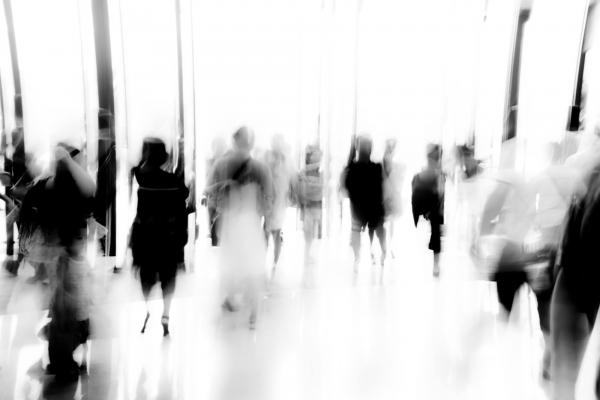Remember those in prison as if you were their fellow prisoners, and those who are mistreated as if you yourselves were suffering. (Heb. 13:3)
Last summer, I wrote the song, “The Talk,” the same week as the back-to-back killings of Alton Sterling and Philando Castile. I was primarily motivated to reach people who questioned the black community’s collective outrage, and who attempted to justify the killings by suggesting that “maybe” the two black men did something to warrant the police responses. Rather than waste more time and energy trying to convince them that these killings were additional examples pointing to much larger systemic problems, I wrote that song from the perspective of a black parent giving his or her child “ The Talk” — a well-known cultural conversation about how to have the best chance of staying alive when engaging with police officers. While it was cathartic to write as a black woman, my hope was that others could see a new perspective on systemic racism by putting themselves in the shoes of parents having this painful conversation. The key was empathy.
A year later, as I attempt to navigate my new normal after the traumatizing experience of standing up for love against white supremacy in Charlottesville, I am certain that empathy alone is not enough.
True empathy, particularly in relation to social justice, must be followed by action. Otherwise, the cycle of marginalization, oppression, discrimination, and pain will continue.
I still whole-heartedly believe that empathy is a critical driver of social change. When I reflect on my faith, I am particularly drawn toward how Christ was the strongest example of what he calls us to be as his followers of love, through a lens of shared humanity and social justice. He demonstrated profound empathy, for example, in weeping with those who mourned, but also firmly stated that we are called to follow the gospel by taking responsibility in joining and supporting those who suffer. “ Carry each other’s burdens, and in this way you will fulfill the law of Christ,” he said (Galatians 6:2). Thus, I believe that allyship is a charge of this faith and should be an active way of life that commits to ensuring social justice for everyone.
We Need Active Allies
I stand firmly behind the notion that we can all be allies in areas in which we hold privilege. In our privilege, we are responsible for dismantling the systems that subsequently oppress marginalized brothers and sisters. This is particularly true in regards to racism, which is so intricately woven into the United States’ historical fabric. White allies’ actions are critical to dismantling systemic racism. Empathy should be a driving motivation — not a static state.
While racism may be rearing its head in the ugliest of ways more recently, it has always existed. Many have been justifiably appalled by more blatant forms of racism that have been demonstrated more recently and regularly. However, responses claiming “this is not who we are" as a nation are dangerous and historically inaccurate. The truth is that this country was founded on three pillars of white supremacy:
- Anti-blackness originating from slavery;
- Indigenous genocide resulting from colonization; and,
- Orientalism, the fear of “others” attempting to infiltrate and threaten U.S. status quo.
My openness about these pillars of white supremacy has often been met with criticism about my disrespecting the nation. But acknowledging systemic racism does not demonstrate a lack of patriotism. It means that we are identifying the first step toward becoming a country where everyone is truly embraced and able to thrive. It means that we are working toward shared humanity. We must recognize that effective efforts to end racism will mean disrupting an entire societal oppressive system that seeps through every ceiling crack, from under every door, and through every wall. It will take diligent work, unwavering commitment, and visible allies.
Don’t get me wrong — I recognize that current times seem more pressing than usual. We have seen the increase of hate crimes, an apparent license for open discrimination, and a genuine fear that pulses through so many of us. It all underscores my plea for allies to turn empathy into action. I know that most people choose love, and prefer shared humanity over racism. I also know that we have collective power to effect social change if enough people commit to this goal in every way possible.
It's Time to Show Up
Though actions speak louder than words, people of color are looking for both right now. My first terrifying experience in Charlottesville was upon arrival that morning, while waiting in an open downtown area for fellow counter-protesters to escort us to the main meeting site. As each white person walked by, I wondered which side they represented: the white supremacy side, or the side that believed that my existence was equally valuable.
That is how I think many people of color are approaching race relations right now, because there is no neutrality when it comes to challenging white supremacy. This is the time to actively show that people are on the side of good. It is time for allies to show up. How? You can show up by responding to your uncle at the dinner table when he criticizes black people for peaceful direct action demonstrations. You can show up by articulating to him the value of validating a community needing to be heard. You can show up by confronting your friends when they make insensitive jokes about a community of color by helping them understand how offensive it is, and how it contributes to ongoing perpetuation of stereotypes and discrimination. You can show up by asking questions when your coworkers say that they “don’t see color.” You can show up by explaining to them that we need to see color, and acknowledge that people of color are in fact treated differently.
Allies can show up every day, in more ways than we often imagine. Joining us in literally putting their bodies on the line is incredibly important, and I was pleasantly surprised and encouraged by how many white people showed up to do exactly that in Charlottesville. I’m hoping that is a start to many more examples of white allies assuming the risk of their brothers and sisters of color. The fact of the matter is that their participation requires less risk and, thus, standing with us makes a substantial difference in both our safety and our impact.
But the needles of social justice are also moved when allies show up for every moment that provides an opportunity to influence people — one mind at a time. Allies can be bridge-builders who influence their own circles by engaging them through empathy and perspective.
Love must win, and that requires dedication from allies who are willing to continue fighting for that outcome. It makes all the difference in the world when I know that a white colleague not only acknowledges the pain of communities of color, but also commits to standing up for efforts to end it. We need to see those numbers. We need to see your solidarity. Please step out of the crowds and show yourselves.
Got something to say about what you're reading? We value your feedback!







